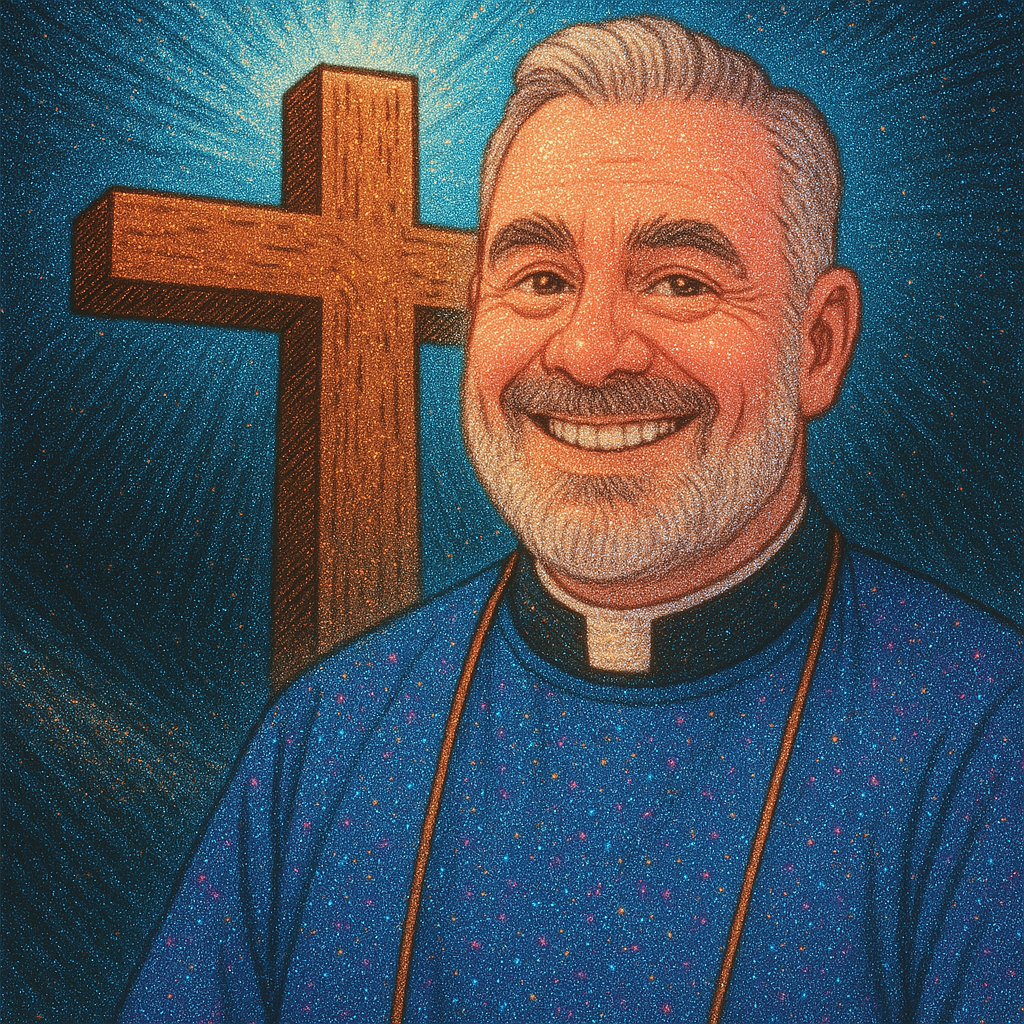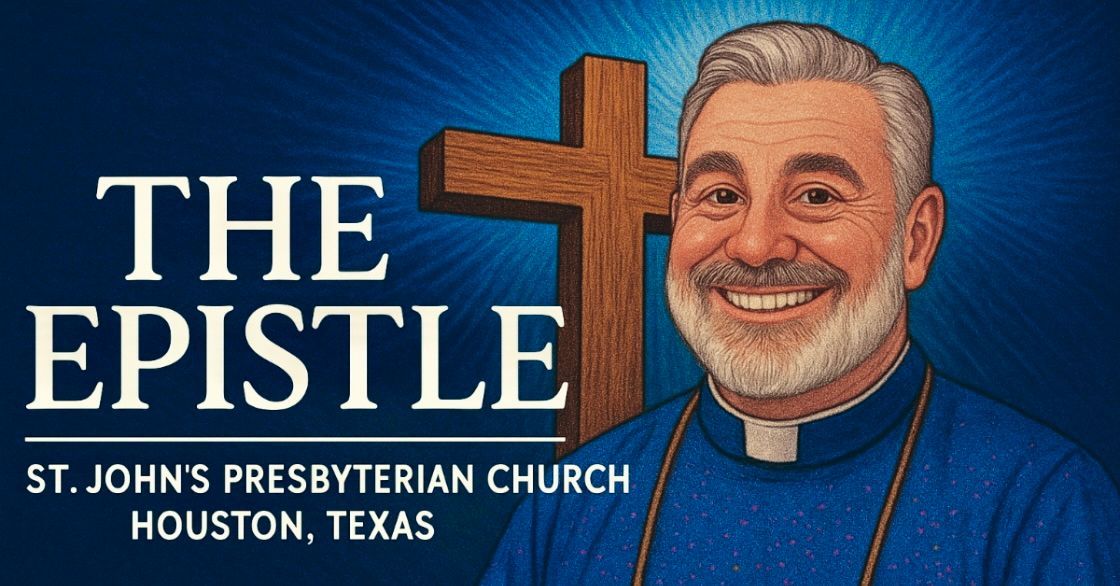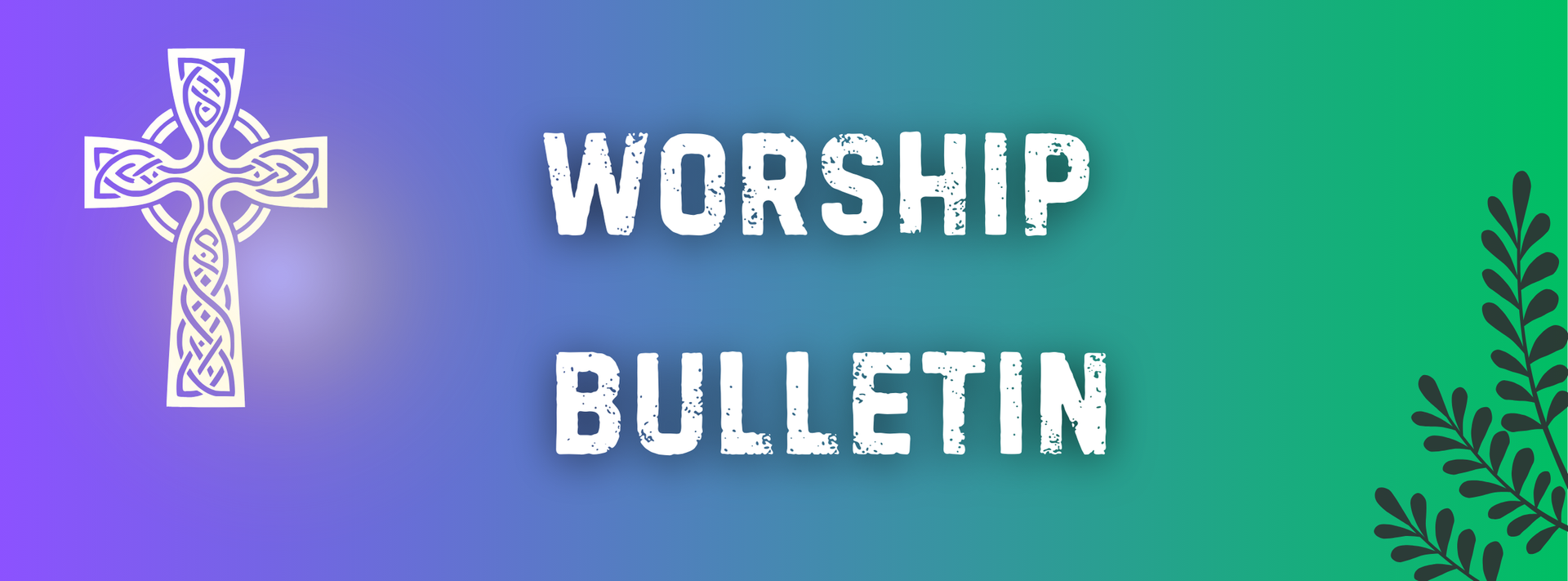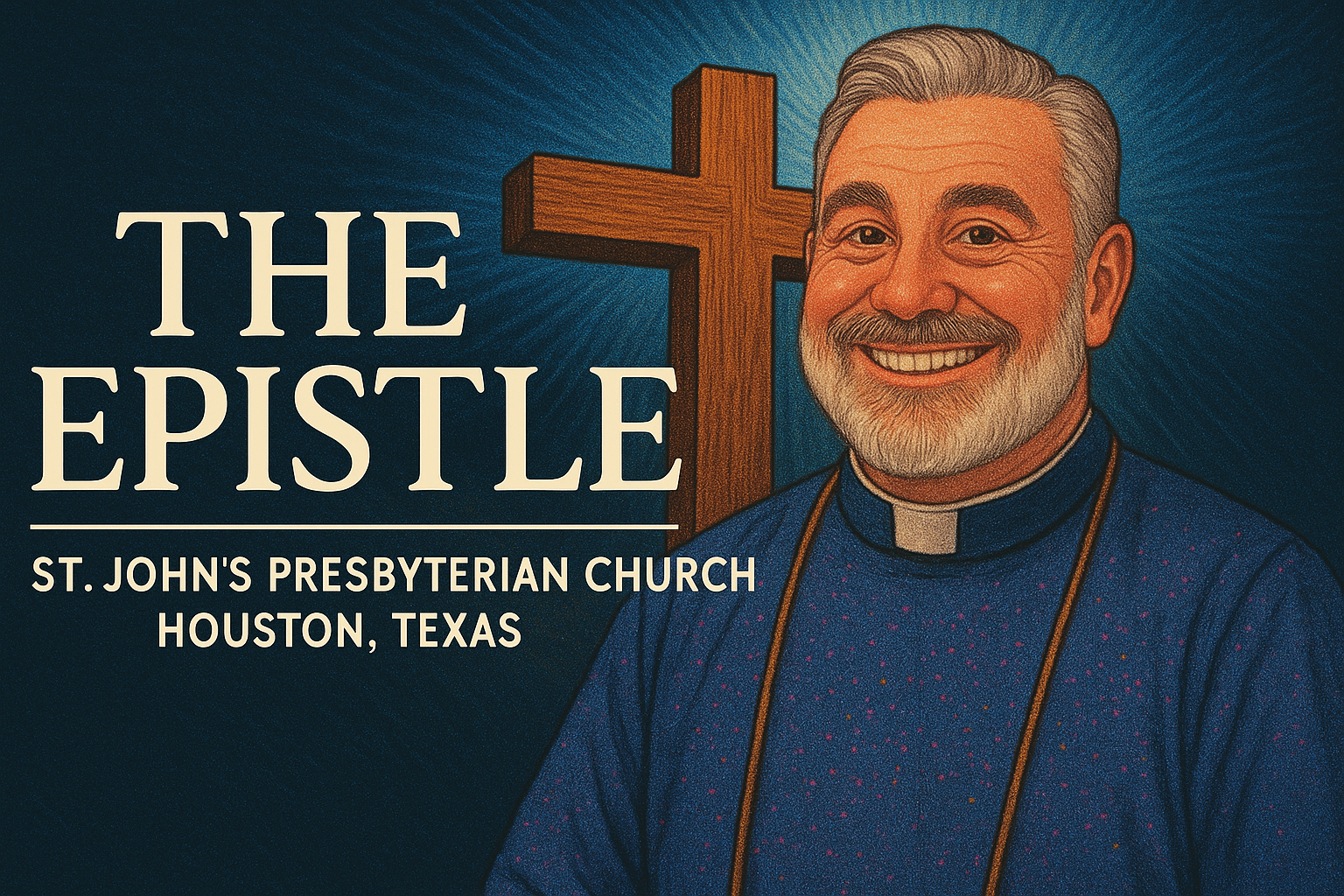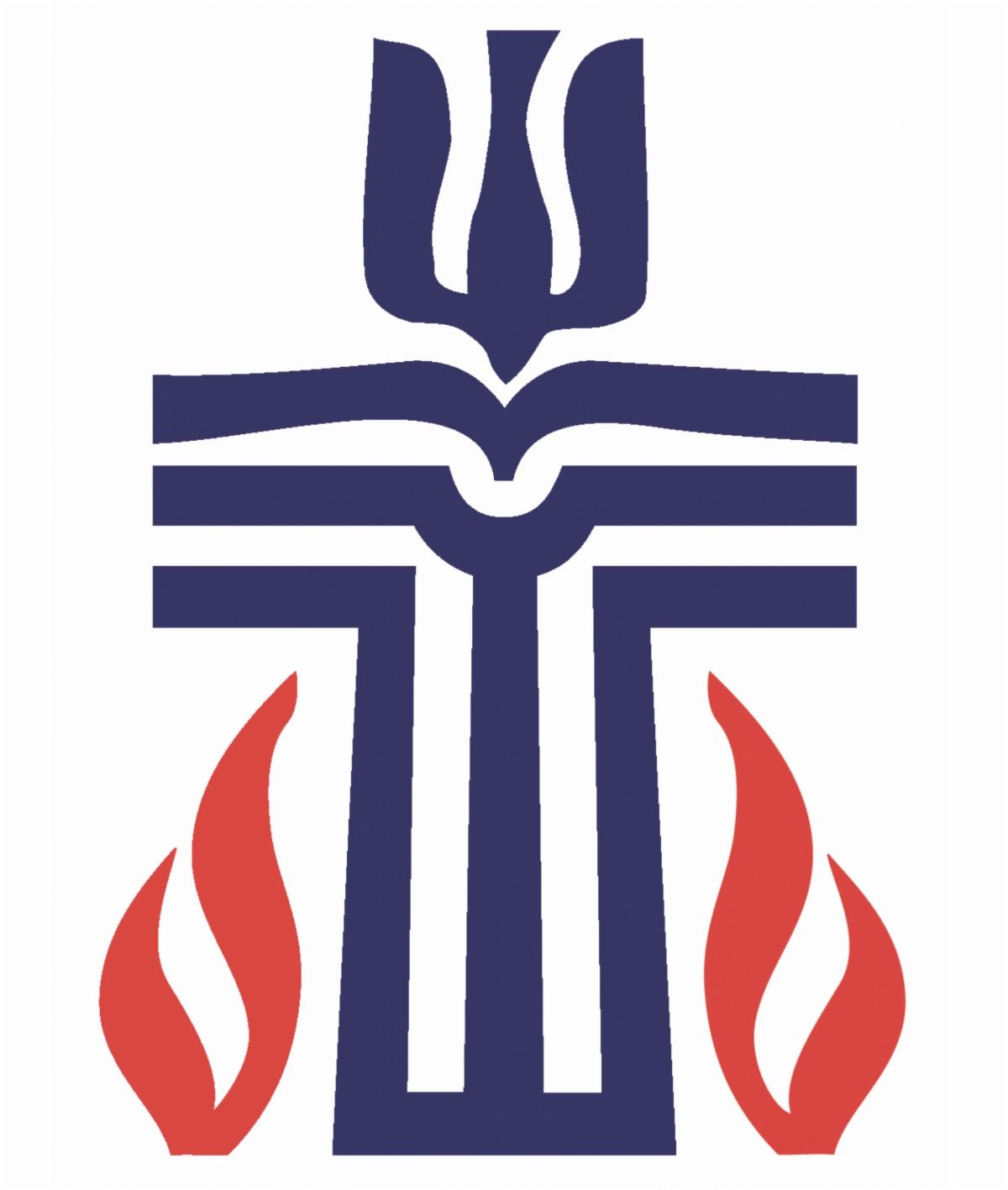Healing Prayer at St. John's Presbyterian: When Ancient Faith Meets Modern Need
There's a moment during some of our worship services at St. John's Presbyterian when something shifts in the room. The sermon ends, and instead of moving straight to the closing hymn, I step to the front of the sanctuary and invite people forward for healing prayer. The elders gather near the altar with small vials of oil. And then we wait.
Sometimes people come forward right away. Sometimes there's a long pause while someone wrestles with whether to stand up and walk that aisle. But eventually, someone does. And then someone else. And what happens next is one of the oldest practices of the Christian church meeting some of the deepest needs of our congregation.
This isn't something we do every Sunday. We don't have it scheduled monthly or quarterly. It happens occasionally when the Spirit leads, and we always post the dates on our church calendar so people can plan to attend if they're seeking this kind of prayer. When it does happen, it's not a separate event or a special healing service at a different time. It's right there in the middle of our regular 11 AM worship, integrated into the community gathering where we already know each other's names and stories.
I want to tell you about this practice because I think it addresses something many people are searching for in Houston's crowded church landscape. We're living in a broken world. Every single one of us is carrying something that needs healing. And while there are plenty of churches offering programs and entertainment and inspiration, there are fewer places where you can simply come forward with your pain and have the church pray for you in Jesus' name.
The Biblical Foundation: James Knew We'd Need This
The practice of healing prayer isn't something we invented. It comes straight from Scripture, specifically from James 5:14-15. Let me quote it for you:
"Is anyone among you sick? Let them call the elders of the church to pray over them and anoint them with oil in the name of the Lord. And the prayer offered in faith will make the sick person well; the Lord will raise them up."
James wrote this letter to early Christians who were scattered and suffering. They didn't have modern medicine. They didn't have counselors on every corner or support groups for every struggle. What they had was each other and their faith in a God who heals.
Notice what James doesn't say. He doesn't promise that every prayer will result in physical cure. He doesn't guarantee that everyone who comes forward will walk away symptom-free. What he does say is that the prayer offered in faith will help the sick person. There's healing available, but healing takes many forms.
The early church understood something we're still learning today. Healing isn't just about bodies. It's about wholeness. The Greek word for "save" and "heal" in this passage is the same word. When we pray for healing, we're praying for God to make us whole in every way that matters.
At St. John's, we take James seriously. We don't spiritualize away his instruction or treat it like an ancient practice that doesn't apply anymore. We actually do what he says. We gather the elders. We anoint with oil. We pray in faith. And we trust that God knows what healing each person needs most.
What Actually Happens During Healing Prayer
Let me walk you through what it looks like when we offer healing prayer at St. John's.
We're in the middle of our regular Sunday worship. The sanctuary has new wooden pews that creak just enough to remind you you're in a building that's been hosting prayers for decades. The light filters through stained glass windows. About 75 people are gathered, which means this isn't an anonymous crowd. We know each other here.
After the sermon, I step forward and say these words:
- "Friends, in just a moment our elders and I will offer the laying on of hands and the anointing of oil. This is an ancient practice of the church, rooted in James 5, where we're told to pray for one another so that we may be healed.
- You are invited to come forward if you desire prayer, whether for yourself or for someone you love, whether the need is physical, emotional, spiritual, or financial. All of it matters to God.
- The Holy Spirit is the true healer, not us. Our task is simply to pray in faith, to open the door to God's mercy. Sometimes healing comes in this life. Sometimes it comes in the life to come. But always, healing comes through the presence of Christ, who makes us whole.
- Come as you feel led. Come trusting the love that holds you, now and forever."
Then we sing a quiet hymn while people decide whether to come forward. The elders and I stand near the front, waiting. No one is rushed. No one is pressured. This is an invitation, not a requirement.
When someone approaches, we ask them quietly what they need prayer for. Sometimes they tell us details. Sometimes they just say "healing for my family" or "I need peace." We don't need to know everything. God already knows.
Then we lay hands gently on their shoulders or head. We take a small amount of oil, blessed and set apart for this purpose, and make the sign of the cross on their forehead. And we pray. Simple prayers, usually. Not fancy religious language, just honest conversation with God about this person's need.
"Lord, we lift up Sarah to you. You know her struggle with chronic pain. We ask for your healing touch. Give her relief. Give her strength. Surround her with your presence. In Jesus' name."
The prayer might last 30 seconds. It might last two minutes. However long it takes to bring this person and their need before God. And then we send them back to their seat with a word of peace, and we wait for the next person.
My Own Story: When I Was the One Who Needed Healing
I should tell you my own story with healing prayer because it shaped how I understand this practice.
I was a teenager, maybe 15 or 16 years old. Basketball season was in full swing, and I'd developed a painful heel spur. If you've never had one, count yourself lucky. It felt like someone was driving a nail into my heel every time my foot hit the court. I was limping through practices, dreading games, wondering if my season was over.
My church offered a healing service. I wasn't sure what to expect, but I was desperate enough to try anything. I went forward for laying on of hands and prayer. The elders gathered around me, put their hands on my shoulders, and prayed for healing. I remember the oil on my forehead, cool and fragrant. I remember feeling like something shifted, though I couldn't explain what.
My heel got much better after that. Not instantly, not miraculously in a way that would make for a dramatic testimony. But over the next few days, the pain decreased. I was able to keep playing basketball that season. I genuinely believe I experienced healing through that prayer.
Now, was it because the inflammation naturally resolved? Did my body just need a little more time? Maybe. I can't prove scientifically that the prayer healed my heel. But I also can't shake the feeling that something real happened when those elders prayed over me. God met me in that moment. And whether the healing was physical, emotional, or spiritual, or some combination of all three, I walked away different than I came.
That experience taught me something important. Healing prayer isn't magic. It's not a guarantee of physical cure. But it's real. It matters. It connects us to God's presence in a tangible way that makes a difference.
Nancy's Story: When Healing Looks Different Than We Hope
Not every healing story ends with physical recovery. Sometimes healing comes in ways we didn't expect or ask for. Let me tell you about Nancy.
Nancy was visiting St. John's on a Sunday when we offered healing prayer. She'd been church-shopping in Houston, looking for a place where faith felt genuine rather than performative. Her sister had cancer, aggressive and advancing, and Nancy was exhausted from being the strong one, the caretaker, the person everyone else leaned on.
When I invited people forward for healing prayer, Nancy surprised herself by standing up. She wasn't sure what she was asking for. Healing for her sister, yes, but also something more. Peace, maybe. Strength. Some sense that she wasn't carrying this alone.
She came forward and told us quietly, "My sister has cancer. I need prayer." We laid hands on her shoulders and anointed her with oil. We prayed for her sister by name. We prayed for Nancy's strength. We prayed for God's presence to surround both of them, for healing in whatever form God knew was needed most.
Nancy told me later that something lifted off her shoulders that morning. Not the cancer. Her sister's diagnosis didn't change. But Nancy felt uplifted and supported by the Holy Spirit in a way she hadn't experienced before. The weight of caregiving, which had been crushing her, became bearable again. She could keep showing up for her sister.
Nancy's sister ultimately died about six months later. The physical healing Nancy had hoped for didn't come in this life. But Nancy told me something important. Throughout those final months of hospice care, through the memorial service and the grief that followed, she knew the Holy Spirit was with them. That prayer had opened something. God's presence became tangible in ways Nancy had never experienced before.
"I prayed for my sister to be healed," Nancy said. "And she was healed. Just not the way I expected. She's whole now in a way she never could be here. And I experienced healing too. I learned that I don't have to carry everything alone. God's with me, even in the hardest things."
That's what healing prayer can do. Sometimes it heals bodies. Sometimes it heals hearts and spirits. Sometimes it gives us what we need to walk through valleys we can't avoid. All of it matters. All of it is real.
The Broad Understanding of Healing We Need
Here's what I want you to understand about healing prayer at St. John's. When we invite people forward, we're not just talking about physical sickness. We're talking about everything that breaks us.
Come forward if you need financial healing. God cares about the bills piling up and the job you just lost and the retirement account that isn't going to stretch as far as you'd hoped.
Come forward if you need emotional healing. Depression, anxiety, grief that won't lift, wounds from childhood that still hurt decades later. All of it matters to God.
Come forward if you need healing in your relationships. The marriage that's struggling, the adult child who won't speak to you, the friendship that shattered over some stupid misunderstanding. God cares about how we love each other.
Come forward if you need spiritual healing. The faith that's grown cold, the prayers that feel like they bounce off the ceiling, the Bible that stopped making sense somewhere along the way. God can heal spiritual dryness too.
Come forward for someone else. Your daughter battling addiction. Your friend going through divorce. Your coworker facing a scary diagnosis. We can pray for people who aren't even in the room because God isn't limited by geography.
The invitation is genuinely open. Whatever needs healing in your life, bring it forward. The Holy Spirit will work in surprising ways sometimes, in more subtle ways at other times. But always, there's something real happening when God's people gather to pray for healing in Jesus' name.
Why Houston Needs This Ancient Practice
Houston is an amazing city. Four million people representing every nation on earth, building lives together in the humidity and traffic and endless strip malls. We've got world-class medical centers and more therapists per capita than almost anywhere. We've got support groups and self-help gurus and wellness influencers promising healing through everything from essential oils to positive thinking.
And yet we're still so broken. Depression rates keep climbing. Anxiety is epidemic. Loneliness has become a public health crisis. We're more connected digitally and more isolated personally than any generation in history.
Into this landscape, the church offers something radically different. Not a program or a technique or a product you can buy. Just prayer. Just the laying on of hands and the anointing of oil and honest words spoken to God about the things that hurt.
It sounds almost too simple, doesn't it? How can something so ancient and so basic possibly address our complex modern problems?
But that's exactly why it works. Healing prayer cuts through all the noise and complexity and gets to the heart of what we actually need. We need to know we're not alone. We need to know someone cares about our pain. We need to know there's a power greater than ourselves that can reach into our brokenness and make us whole.
Healing prayer isn't the only thing people need. Sometimes you need surgery or therapy or medication or financial counseling or a new job. God works through all of those things too. But healing prayer does something those other resources can't quite touch. It connects your specific pain to God's specific presence in a moment that matters.
What Makes This Presbyterian
You might be wondering why a Presbyterian church practices healing prayer with laying on of hands and anointing with oil. Isn't that more of a Pentecostal or charismatic thing?
Actually, no. This practice belongs to the whole church, not just to particular traditions. James wasn't writing to Pentecostals (they didn't exist yet). He was writing to all Christians, telling them to pray for healing and anoint with oil. For centuries, this was just normal Christian practice.
What makes it Presbyterian is our understanding of who does the healing. The liturgy I use makes this explicit: "The Holy Spirit is the true healer, not us." We're not spiritual healers with special powers. We're not claiming that our prayers can force God's hand or guarantee particular outcomes. We're simply opening the door to God's mercy and trusting the Holy Spirit to do what needs to be done.
We also practice healing prayer in the context of ordered worship and church community. This isn't a dramatic healing crusade with a celebrity preacher working up the crowd. It's quiet, personal, grounded in Scripture and sacrament. It happens in the same sanctuary where we baptize babies and share communion and confess our sins together. Healing is part of the whole Christian life, not separate from it.
And we keep it real. We don't only tell stories about miraculous physical healings. We tell the whole truth, including stories like Nancy's where healing came in ways we didn't expect. That honesty is very Presbyterian. We trust that God is good and God is at work, and we also acknowledge that we don't always understand how or why God does what God does.
How to Participate
If you're interested in experiencing healing prayer at St. John's, here's what you need to know.
First, check our church calendar at stjohnspresby.org or call the church office at 713-723-6262 to find out when the next healing prayer opportunity will be offered. We don't do this every Sunday, so you'll want to plan ahead.
When you come, arrive by 11 AM for worship. The healing prayer happens during the regular service, usually toward the end after the sermon. You don't need to come early or stay late or attend a separate event. Just show up for regular Sunday worship.
You don't need to be a member of St. John's. You don't need to be Presbyterian. You don't even need to be sure what you believe about healing prayer. Come with your doubts and your questions. Come with your pain and your need. That's enough.
When I extend the invitation, simply stand up and walk forward if you feel led to do so. You can come forward for yourself or for someone else. You can share as much or as little detail as you want about what you need prayer for. We won't pry, and we won't make you tell your whole story to the congregation. This is between you, the elders, and God.
The whole thing will take maybe two or three minutes. Gentle hands on your shoulders, oil on your forehead, a simple prayer. And then you return to your seat and we continue with worship.
After the service, if you want to talk more about what you experienced or ask questions or process what happened, I'm always available. Many people stay for the coffee hour in our fellowship hall, and that's a good time to connect. Or you can call the church office and set up a time to meet with me privately.
This Connects to Everything We Do
Healing prayer at St. John's isn't an isolated practice. It connects to who we are as a church and what we believe God is calling us to do.
Our vision statement says we want to be "a place of healing, compassion, grace and love, where real people can come and share authentically with each other." That's not just words on paper. Healing prayer is one of the ways we live that out. We're literally creating space for people to bring their real struggles and receive God's real grace.
We've even written a book about this called Healing Happens Here, exploring what it means to be a church community where transformation and wholeness are genuinely possible. You can find it on Amazon if you want to dig deeper into these ideas.
Our healing focus also shows up in our mission work. We run a community garden that provides fresh produce to food pantries. We support an orphanage in Uganda and work with Presbyterian Children's Homes and Services to care for vulnerable kids. We partner with Braes Interfaith Ministries to meet practical needs of our neighbors. All of this is about participating in God's healing work in the world.
Healing prayer in worship connects to healing work in the community. When we pray for God to heal individuals, we're reminded that God is also at work healing families, neighborhoods, and systems. It's all part of the same thing.
If you want to understand what we're really about at St. John's, come on a Sunday when we offer healing prayer. You'll see our theology in action. You'll experience what Presbyterian spirituality actually feels like. And you might just find the healing you've been looking for.
An Invitation to Something Real
Most churches in Houston will promise you community, connection, and spiritual growth. And many of them deliver on those promises to some extent. But how many will actually pray over you with oil when you're hurting? How many will create space for you to bring your specific pain and receive specific prayer?
At St. John's Presbyterian, healing prayer is part of who we are. Not the only thing we do, but one of the most important things. Because we believe the church should be a place where broken people can come and find the presence of God meeting them in their brokenness.
You don't have to wait until you're desperate. You don't have to have a crisis to justify coming forward. If there's something in your life that needs healing, even something small, even something you're not sure is worth bothering God about, come anyway. All of it matters to God.
Maybe you're skeptical. Maybe healing prayer sounds too mystical or too simplistic or too old-fashioned. Come anyway. Test it for yourself. See what happens when the church prays for you in Jesus' name.
We're located at 5020 West Bellfort Avenue in Houston's Westbury neighborhood. Sunday worship is at 11 AM. Check our calendar for the next healing prayer opportunity, and then just show up. Come as you are. Bring what hurts. Trust the love that holds you, now and forever.
Because here's what I've learned after years of offering healing prayer: God shows up. Not always in the ways we expect. Not always with the answers we want. But God shows up. The Holy Spirit is the true healer, and the Spirit is faithful.
Come and see.
For more about St. John's Presbyterian Church's approach to faith, healing, and authentic community, check out our Healing Hearts Support Group or explore our other resources on spiritual growth including James' Gems: Faithful Living, Wise Words and Rooted in Christ: A Journey Through Colossians.

